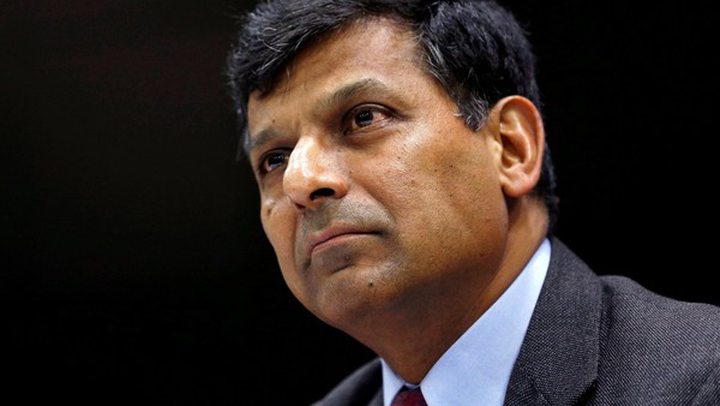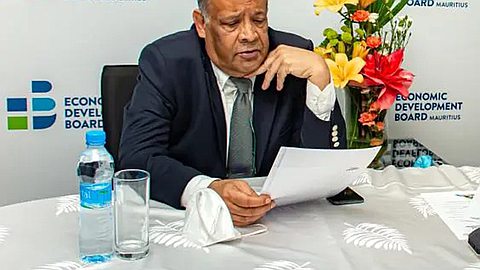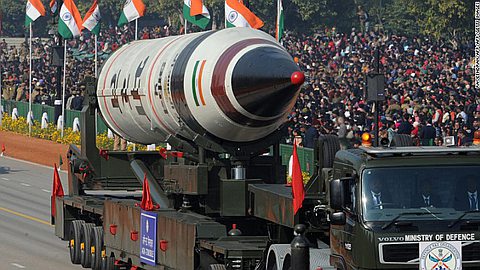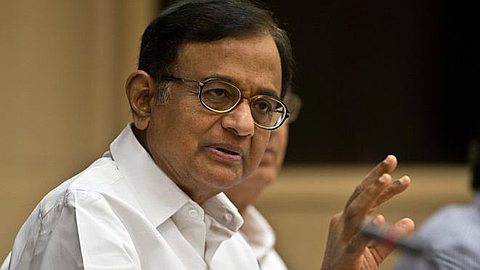Raghuram Rajan’s Departure From RBI Unnerves India Investors

His 2013 appointment, which came as India was being buffeted by runaway inflation and its currency was sliding, roused euphoria in the business community. India’s biggest business daily published a Photoshopped image of Mr Rajan in 007-style action, brandishing a pistol made of rupee notes, with the headline “Name’s Rajan, Game’s Bond”.
Since then, Mr Rajan — a former International Monetary Fund chief economist widely known for his prescient, forthright warnings of the 2008-09 global financial crisis — has been seen in an almost heroic light for his assured handling of India’s macroeconomy, including persistently high inflation and his tackling of its bad debt problem.
But Mr Rajan’s larger-than-life image, his plain speaking and his willingness to tackle tough issues head on may well have cost him his job.
At the weekend, he said he would return to the University of Chicago when his three-year term as governor ended on September 4. It had become apparent that Prime Minister Narendra Modi was reluctant to offer Mr Rajan the customary two-year extension granted to all RBI governors in the two decades since India’s market liberalisation began.
“Everybody is shocked,” says a New Delhi-based policy analyst, who asked not to be identified given the sensitivity of the issue. “None of us have an adequate explanation. This is going to hurt.”
Mr Modi has kept silent in recent weeks as Subramanian Swamy, an influential lawmaker from his ruling Bharatiya Janata party, publicly attacked Mr Rajan for “wilfully wrecking” the Indian economy and for being “mentally not fully Indian”.
Mr Rajan, in a weekend letter to RBI staff, said he had been open to staying on to see through the reforms he had begun, but that “on due reflection and after consultation with the government” he was returning to his “ultimate home in the realm of ideas”.
Some political analysts in India suspect the prime minister viewed Mr Rajan’s global profile as competition to his own, rather than as an asset that bolstered his government’s credibility. Mr Rajan was also criticised by some industry groups for his initial hawkish stance on inflation as they clamoured for lower interest rates, though he has since cut rates by 150 basis points.
Perhaps most crucially, he antagonised some powerful Indian business groups with his denunciation of crony capitalism, and the pressure he put on state banks to get tough with stressed borrowers long accustomed to pliant state banks sweeping their problems under the carpet.
The New Delhi-based analyst says: “He has clearly made some people unhappy in the right wing of the BJP, but that’s just a cover — always look for an economic reason. There are big industrial groups who have been hurt by his policies — not on interest rates, but on cleaning up the banks, and cleaning up the people who have caused the non-performing assets at the banks.”
India’s financial markets are expected to be jittery on Monday as investors digest what many will take as a bitter disappointment, especially given other global political and economic turmoil, including nervousness surrounding Britain’s referendum this week on EU membership.
Jahangir Aziz, head of emerging market economics at JPMorgan, says: “In a world which is so volatile and [where there is] already a large degree of uncertainty, people gather around or are attracted to stability and he [Mr Rajan] has epitomised that.”
Mr Aziz says much will depend now on who is appointed to replace Mr Rajan and how that person views the reforms he championed, including inflation-targeting as the main monetary policy objective, cleaning up the banking sector, and efforts to open the state-dominated banking system to greater competition.
Arun Jaitley, India’s finance minister, tweeted at the weekend that the government would announce Mr Rajan’s successor “shortly”.
Until then, the “uncertainty will be around whether there would be continuation of the same kind of monetary policy; whether the banking sector clean-up will be pushed forward with the same kind of enthusiasm Raghu has displayed, and whether [his replacement] believes in expansion of new banks and new kinds of banks,” Mr Aziz says.
But analysts also say Mr Modi’s willingness to cut loose such a respected figure will prompt investors to take a closer look at his administration, particularly the degree to which rhetoric about transforming India’s economy is matched with action.
The chief Asia economist of a western investment bank says: “It reflects on the government. Somebody who is competent, perceived well, and has done a good job — what could possibly be the reason for not giving him an extension?”
“It will give people pause for thought,” says James Owen, senior partner for India & South Asia for Control Risks, which advises western businesses. “For me, this is about what this says about the ability of the government to see through its reform agenda.”
Rajan at the RBI
August 2013 Appointed governor for three-year term. Takes the helm on September 5
September Appoints expert committee to revise and strengthen monetary policy
October Raises interest rates to combat inflation, frustrating businesses already unhappy with high cost of capital
January 2014 Expert committee proposes formal inflation-targeting framework for monetary policy, setting a benchmark goal of 4 per cent, plus or minus 2 per cent
April RBI issues first new general Indian banking licences since 2004. It later issues batches of licences for new types of banks, including small finance banks and payments banks, as part of a plan to remake the financial system
January 2015 RBI cuts interest rates, beginning a cycle of monetary easing still under way
March RBI and finance ministry agree inflation targeting framework.
CV
? Born India, 1963
? Studied engineering at Indian Institute of Technology (Delhi) then obtained MBA from the Indian Institute of Management, Ahmedabad, followed by a PhD from the Massachusetts Institute of Technology
? Chief economist at the International Monetary Fund from 2003 until 2006, a period when he upset US policymakers with his warnings of a looming financial crisis, triggered by excesses in the US financial system
? Taught at the University of Chicago’s Booth School of Business before and after IMF stint
? Author of Fault Lines: How Hidden Fractures Still Threaten the World Economy, published in 2010. Winner of Financial Times/Goldman Sachs Business Book of the Year




